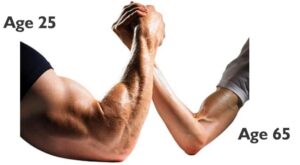This issue of Making a Difference! is brought to you by…
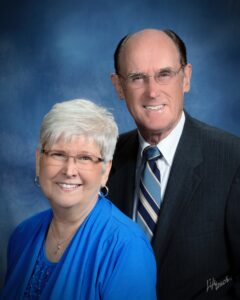 Grace & Pete Reno
Grace & Pete Reno
(908) 534-4773 • (908) 938-0547 cell
Send Us An Email
Go Shopping!
In this issue…
♦ Uh-oh! Where did my muscles go??? ♦ Symptoms of muscle mass loss
♦ Muscle mass and your health… ♦ How’s your muscle mass?
♦ What causes muscle mass loss? ♦ Shaklee & healthy muscles
♦ Why leucine is important
♦ 10 great reasons to love Life Energizing Shake!
♦ Pina Colada Shake ♦ Chocolate Peanut Butter Shake
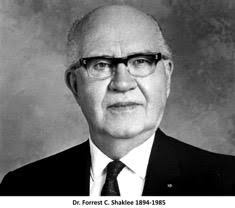 “Can old age really be postponed? It most assuredly can!
“Can old age really be postponed? It most assuredly can!
Everyone is familiar with the short life of a poorly constructed building. It soon appears weather-beaten and old. The same thing applies to the [human] body . The poor quality material used in the poorly constructed building simply failed to meet the rigors of time.
Can you possibly expect your body to meet those same rigors of time if you carelessly provide poor quality material?
You can postpone old age, IF you will provide good building material. Can such material be found in processed, refined, chemicalized and over-cooked foods? The answer is obvious.”
~ A Study Course in Nutrition by Forrest Shaklee Sr., DC, DD
Uh-oh! Where did my muscles go???
Maintaining strong, healthy muscles is a critical component of overall health as you age. It is also vital for your quality of life. But… as you age your muscles tend to weaken and lose muscle mass, leading to functional limitations and a higher risk of developing chronic diseases.
However, there are proven strategies and techniques that you can follow to help maintain… and even increase… your muscle mass as you age. By following these strategies and making them part of your lifestyle, you can stay forever fit and active and enjoy a better quality of life in your golden years.
Part of the reason you can lose muscle mass as you age is a reduced or altered food intake. Usually though, the biggest factor is reduced activity, which can result in muscular atrophy.
Cultivating positive habits early in life is imperative to prevent age-associated decline in muscle mass, reduction in strength, mobility, and other health concerns.
In this newsletter we will explore practical tips and evidence-based strategies to maintain and build muscle mass and promote healthy aging.
Symptoms of muscle mass loss
If you are losing muscle mass, you might experience the following:
____ Weight loss
____ Fatigue and weakness
____ Fevers, chills, and night sweats
____ Loss of sensation
____ Diarrhea
____ An extreme change in appetite
____ Loss of stamina
____ Numbness or tingling in arms and legs
____ Loss of balance
____ Gradual memory loss
Muscle mass and your health…
There are major benefits to having healthy muscle mass. Many bodily functions rely on the specific cells that make up muscle fibers, and since most of the body’s movements are the result of muscle contraction, maintaining muscle mass is critically important as you age.
Your muscles give you the ability to do so many things you rarely think about, such as chewing 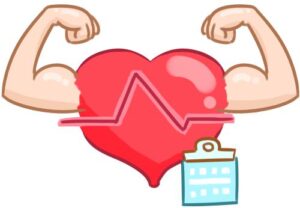 your food, and speaking. Muscles regulate breathing, keep your heart… a very important muscle… beating, and help digest your food. They help you lift, jump, run, walk, play sports, and participate in other activities you love.
your food, and speaking. Muscles regulate breathing, keep your heart… a very important muscle… beating, and help digest your food. They help you lift, jump, run, walk, play sports, and participate in other activities you love.
Skeletal muscles create more subdued movements that power eye movements and facial expressions. Other vital functions, such as joint stability, posture, temperature regulation, respiration, and vision also depend on muscle tendons, muscle contraction, and metabolism.
In fact, your body is a virtual muscle machine! You need to take care of it so that you can live as optimally as possible.
The negative health impact of muscle loss
Many people today are trying to lose excess weight. As nearly 75% of American adults are overweight or obese, that’s good! But reducing can also mean loss of muscle mass… not good! Losing muscle mass results in diminished strength, increased risk of disability, falls, fractures, vulnerability to injury, and even early death. And… a decrease in muscle mass is typically accompanied by a gradual increase in body fat, leading to increased insulin resistance, joint stiffness, reduced bone density, and poor posture.
These health conditions can also contribute to heart disease, obesity, osteoporosis, and type 2 diabetes. A weakened body will also prevent you from being functionally independent and increase feelings of depression and isolation.
Maintaining muscle mass
If you are a senior, you may have already noticed a decline in your muscle mass. Yes… maintaining muscle mass takes effort. But don’t despair! Here are some techniques you can follow to reverse the muscle loss:
⇒⇒ Eat a muscle-building diet… one that provides adequate protein, healthy fat, carbohydrates and other nutrients.
⇒⇒ Get plenty of protein… crucial to build, repair and maintain muscle tissues. Life Shake will help build lean muscle, burn fat, and support metabolism.
⇒⇒ Optimize vitamin D… which aids in muscle protein synthesis, regulates calcium and phosphate levels, increases muscle strength, and reduces inflammation. To make sure you’re getting enough, take Vita-D3 daily.
⇒⇒ Boost your omega-3 fatty acids… to prevent age-related muscle loss (sarcopenia), stimulate protein synthesis, and improve muscle flexibility, coordination, and balance. OmegaGuard provides a full spectrum of omega-3 fatty acids.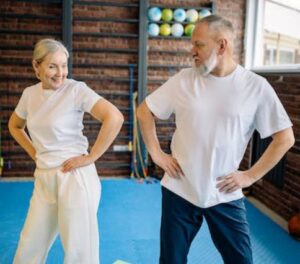
⇒⇒ Follow a regular exercise routine. Lack of physical activity is one of the main culprits in muscle loss. The right exercises can help maintain muscle mass while aging.
⇒⇒ Get enough sleep. While you sleep your body releases testosterone, growth hormones, and rebuilds and repairs the body. Rest is also crucial to prevent emotional stress, reducing catabolic stress hormones that cause muscle loss. For restful sleep, take Dream Serene before bed.
By following these tips, it is possible to create a sustainable, lifestyle plan that supports muscle growth and healthy aging.
Turnaround Talk: Family Fitness
One way to increase your muscle mass is to help make sure your family is keeping in top shape. And one way to do that is by doing physical things together. Dr. Jamie McManus has suggestions.
How’s your muscle mass?
Here are some common ways to assess whether your muscle mass is in a healthy range for you.
Body Mass Index (BMI)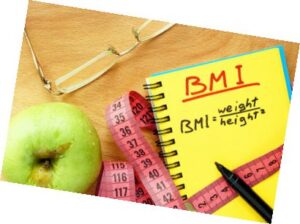
Your BMI is a quick and easy way to estimate whether your weight is healthy for your height. This helps determine whether your body is in proportion or not. However, your BMI does not determine your muscle mass.
Body composition analysis
Your body composition measures the proportion of fat, muscle, and bone in your body. This can be done through many different methods. Optimal muscle mass varies depending on your body composition goals and can be evaluated by assessing body fat percentage, lean body mass, and skeletal muscle mass.
Strength and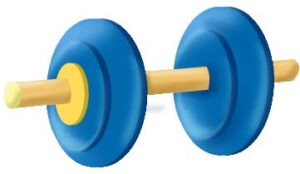 performance
performance
Optimal muscle mass is typically associated with greater strength and performance. If you find that you can perform exercises with ease and lift heavier weights than before, you are likely building a more optimal muscle mass!
What causes muscle mass loss?
Your body’s muscle mass gives it shape, stability, and balance and provides many health benefits, including improved bone density and increased energy.
Most people lose muscle mass naturally as they age largely because of the disuse of their muscles over time.
If, however, you suddenly experience significant muscle loss or abrupt changes in muscle integrity, it might be due to underlying conditions such as…
♦♦ Malnutrition. When you are malnourished, your body will begin to burn muscle to make the energy and fuel that it needs to function. Malnutrition is caused by a poor diet… insufficient protein intake, inadequate hydration, and lack of essential nutrients, such as potassium, iron,  magnesium, and zinc, all of which play important roles in muscle metabolism and growth.
magnesium, and zinc, all of which play important roles in muscle metabolism and growth.
To ensure a great nutritional foundation, take Vitalizer every day.
♦♦ Years of yo-yo dieting. Most restrictive or fad diets do nothing to protect muscle health as you attempt to lose weight. What you often lose as you diet is some fat (yea!) and a devastating amount of muscle (oh-no!). And… when you gain the weight back… as is the case with most diets… the pounds you put on are in the form of fat, not muscle. Since muscle helps burn fat, you are now less able to lose when you embark upon your next diet. Yo-yo!
To safely lose weight and keep it off permanently, try the clinically-proven Shaklee 180 Program.
♦♦ Inactivity. If you are sedentary, you could lose the muscles that you do not use.
♦♦ Mental health issues. Psychiatric causes related to your emotions, feelings, behaviors, and cognitive processes or overuse of drugs or substances can cause weight and muscle mass loss.
♦♦ Hyperthyroidism. An overactive thyroid produces an excess of the hormone thyroxine, causing metabolic imbalance, unexplained weight loss, and anxiety.
♦♦ Chronic disease or systemic illness can also cause loss of muscle mass.
Weight-Loss Interval Training Study Protocol
Two authors of Quincy College’s groundbreaking 2017 study on weight loss, Dr Wayne Westcott and Rita La Rosa Loud, explain and demonstrate the study’s simple interval training protocol, which also featured a structured meal plan with leucine-enhanced meal replacements from Shaklee 180. For more details on the study and how this customizable routine delivered proven results, click here.
Shaklee & healthy muscles
Studies have shown that adequate protein enhanced with added leucine can be effective in 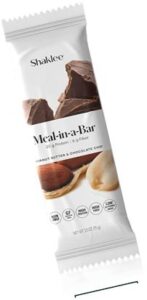 preserving muscle mass while also promoting weight loss. This is one reason why products like Life Shake, Shaklee 180 Meal-in-a-Bar, and Performance Advanced Physique 100% Grass-Fed Whey Protein contain leucine to help preserve and build lean muscle. Leucine needs to work in conjunction with exercise and adequate dietary protein to not only preserve muscle mass, but help those who want achieve a healthier weight.
preserving muscle mass while also promoting weight loss. This is one reason why products like Life Shake, Shaklee 180 Meal-in-a-Bar, and Performance Advanced Physique 100% Grass-Fed Whey Protein contain leucine to help preserve and build lean muscle. Leucine needs to work in conjunction with exercise and adequate dietary protein to not only preserve muscle mass, but help those who want achieve a healthier weight.
Retaining muscle mass is especially important for senior citize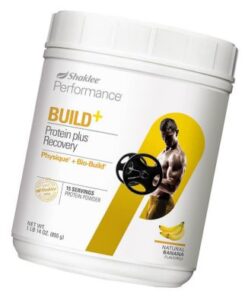 ns. That’s why Performance Physique + Bio-Build is a particularly valuable supplement for those who want to prevent sarcopenia or build stronger, more flexible and resilient muscles as they age. Physique + Bio-Build delivers more energy to the muscle than either carbohydrates or protein alone.
ns. That’s why Performance Physique + Bio-Build is a particularly valuable supplement for those who want to prevent sarcopenia or build stronger, more flexible and resilient muscles as they age. Physique + Bio-Build delivers more energy to the muscle than either carbohydrates or protein alone.
Finally, building muscle boosts your metabolism. Research shows that exercise that improves muscle health improves other systems, including mental functions and balanced blood sugar.
Performance®: Build
Every athlete needs to energize, hydrate, build, and recover—but depending on the type of athlete and workout, you may pick different solutions from our Performance Sports Nutrition line. Learn which Performance Build product is best to meet your unique nutrition needs.
Why leucine is important
Leucine is one of three branched chain amino acids (BCAAs) along with isoleucine and valine. The BCAAs are unique for their ability to go through the gut and liver, following protein 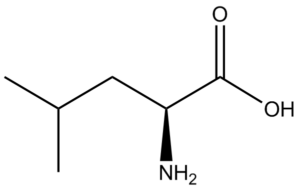 digestion and absorption, and pass directly into circulation, primarily being delivered to muscles. Leucine can’t be produced in the body and can only be taken in through diet.
digestion and absorption, and pass directly into circulation, primarily being delivered to muscles. Leucine can’t be produced in the body and can only be taken in through diet.
Why is leucine special? Your muscles are in a continuous state of breakdown and repair called “protein turnover.” Leucine plays a unique role in stimulating muscle protein synthesis, a process in which protein is produced to repair muscle damage and prevent protein breakdown. Muscle repair is necessary for physical activity, because exercise causes muscle protein breakdown. And muscle protein stimulus and breakdown determine whether or not muscle is built or lost, which makes leucine an important BCAA for maintaining lean body mass, or the mass of the body minus fat.
If you’re trying to lose weight, it’s important to maintain lean body mass while decreasing body fat, since lean body mass helps maintain your metabolic rate.
Leucine helps repair and rebuild your muscles while you lose weight to counteract loss of lean body mass and help burn more calories.
10 great reasons to love Life Energizing Shake!
There are 10 things to love about Life Shake:
1) Shaklee-powered protein = ENERGY! Life Shake has 16 grams of ultra-pure, proprietary, plant-based, non-GMO protein with precise ratios of all 9 essential amino acids.
2) Life Shake contains a powerful patent-pending combination of prebiotics and one billion 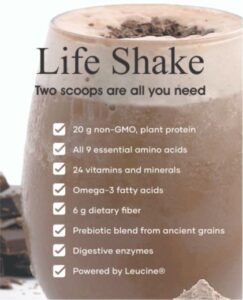 CFU of patented, clinically-tested probiotics to support digestive and immune health. And… they are also 780 times more viable than the probiotics found in yogurt.
CFU of patented, clinically-tested probiotics to support digestive and immune health. And… they are also 780 times more viable than the probiotics found in yogurt.
3) Powered by leucine, Life Shake helps you burn fat, not muscle, to help you lose weight.
4) NO artificial sweeteners, preservatives or flavors
5) Non-GMO, gluten free, lactose free, low glycemic and certified Kosher
6) Life Shake contains the amount of protein found in 4 eggs; the amount of fiber found in 1 cup broccoli+1 cup pineapples+1 cup cauliflower; the amount of calcium found in 2 cups milk; the amount of vitamin D found in 10 oz. of tuna; and the amount of leucine found in 5 oz. of chicken.
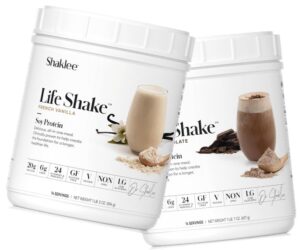 7) Available in both soy and non-soy.
7) Available in both soy and non-soy.
8) Life Shake Plant formula features an exclusive, patent-pending blend of soy-free protein with sacha inchi, potato, rice, pea, and leucine, along with omega-3 ALA to support heart and brain health.
9) Life Shake makes an excellent meal-on-the-go.
10) Yummy flavors: Vanilla, Chocolate, Strawberry and Cafe Latté, plus seasonal varieties.
Life Tastes Good
Hear what folks think of Shaklee Life Shake!
Pina Colada Shake
____ 2 scoops French Vanilla Life Shake
____ Juice from ¼ lemon
____ 1 cup frozen pineapple
____ 8 oz low-fat coconut milk
____ 4 oz unsweetened almond milk
____ Rum flavoring (optional)
Directions: Blend all ingredients together with ice in a blender until creamy.
Nutrition facts: Calories: 280, Protein: 22 g, Fat: 9 g, Carb: 29 g, Fiber: 9 g, Sugars: 14 g (from fruit)
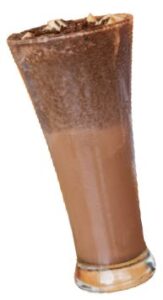 Chocolate Peanut Butter Shake
Chocolate Peanut Butter Shake
____ 2 scoops Rich Chocolate Life Shake
____ 1 Tbsp. natural peanut butter
____ Pinch of salt.
____ 10 oz. unsweetened almond milk
Directions: Blend all ingredients together with ice in a blender until creamy.

